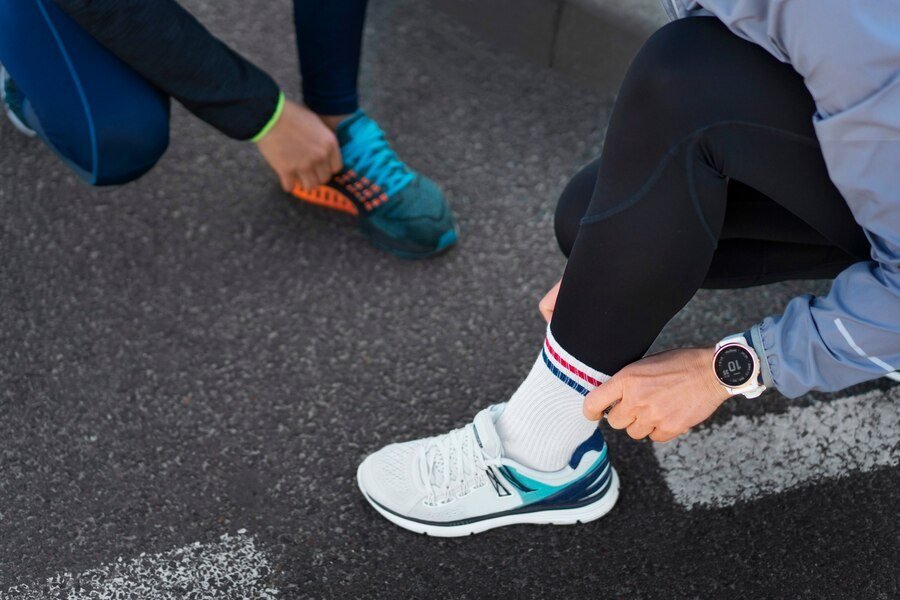When we think about maintaining our health, we often focus on diet, exercise, and mental well-being. However, one aspect that many people haven’t considered is the impact our footwear can have on our overall health. From back pain to circulation issues, the shoes you choose to wear every day can make a significant difference. Let’s into how your choice of shoes can impact your health and what types of footwear you should consider for optimal well-being.
Boost or Bust? How Shoes Affect Your Posture and Back Health
The foundation of your body’s alignment starts with what you put on your feet. Shoes that don’t have proper support can lead to poor posture, which, in turn, may cause a domino effect of health issues, most notably in your back. Unsuitable footwear can alter the way you walk and how you distribute your weight, leading to strain and discomfort in the spine.
Over time, this misalignment can result in chronic back pain, muscle fatigue, and even headaches. To combat these problems, opt for shoes with adequate arch support and a well-cushioned sole that promotes a more natural walking motion. This choice helps in maintaining an upright posture, thus safeguarding your back from undue stress.
Can the Right Shoes Help in Shedding Pounds?
If you’re trying to shed some weight, exercise is a key component, and wearing the right shoes can make physical activity much more inviting and less challenging. Proper exercise footwear provides the necessary support for your feet, enhancing comfort and efficiency during workouts. This support can significantly reduce injuries and the general wear and tear on your body, making it even easier to stick to a regular workout regimen.
Burning an extra 400 calories a day through active movement can substantially aid in shedding pounds. Therefore, investing in a good pair of sneakers could be the first step towards a more active, healthier lifestyle. It’s not just about the calories you burn; it’s about feeling good while doing it, which motivates you to keep going.
Crucial Role of Footwear for Diabetics
For individuals with diabetes, choosing the right shoes is not just a matter of comfort—it’s a crucial component of health management. Diabetic neuropathy, a common complication, can create a loss of sensation in the feet, making it difficult to feel irritation, pressure, or injuries that can lead to serious infections and complications. The importance of selecting the right footwear, such as specialized diabetic shoes for men, cannot be overstated.
These shoes are designed to lower the incidence of skin breakdown in people with diabetes who have existing foot disease and to provide the necessary support to prevent foot injuries. With features like non-binding uppers, deep toe boxes, and orthotic insoles, they ensure comfort and protect against the complications that improper footwear could exacerbate. Making an informed choice about footwear can dramatically improve the quality of life for diabetics and provide peace of mind by reducing health risks associated with the disease.
Circulation and Swelling: Impact of Tight Shoes
Many people underestimate the importance of wearing properly fitting shoes, not just for comfort but for the health of their circulation system. Shoes that are too snug and tight can constrict blood flow. This ultimately leads to swelling and numbness in the feet and legs. This issue is particularly critical for those who stand or walk for extended periods.
Furthermore, poor circulation can exacerbate health issues that include varicose veins and even deep vein thrombosis (DVT). To maintain good circulation, choose shoes with a comfortable fit—not too tight and with enough room to wiggle your toes. Also, shoes with adjustable closures, such as laces or Velcro straps, can help accommodate changes in your feet ‘ size throughout the day, which often occurs naturally.
Link Between Footwear and Joint Health
Your joints are impacted by the shoes you wear. This is especially true in the hips, knees, and ankles. Wearing shoes that lack support or are excessively worn out can lead to abnormal walking patterns, placing increased stress on your joints. Over time, this problem can contribute to joint pain and conditions such as arthritis.
Conversely, wearing well-cushioned shoes that provide good shock absorption can help protect your joints by reducing the impact on them during activities like walking or running. For those already suffering from joint issues, specialized orthopedic shoes can provide extra support, making movement less painful and improving quality of life.
Final Lines
The shoes you wear play a crucial role in your overall health, from supporting your posture and protecting your joints to aiding circulation and even helping in weight management. By choosing footwear that fits well, offers proper support, and caters to your specific needs, you can prevent many health issues and enhance your well-being. Remember, investing in the right pair of shoes is an investment in your health.
